Education
Leading lights from education discuss the highs and lows of 2019 as well as the hopes for 2020
In the last month of the year, a note of hope was sounded with the HRD Ministry declaring that the new National Education Policy would be in the public domain very soon and, what’s more, it would ‘establish the glory of India in the world’.
Published
4 years agoon

In the last month of the year, a note of hope was sounded with the HRD Ministry declaring that the new National Education Policy would be in the public domain very soon and, what’s more, it would ‘establish the glory of India in the world’. Yes, we could do with some of that shine! MHRD Secretary (Higher Education) R Subrahmanyam emphasised, “This education policy is going to modify the way we are implementing our education systems.” NEP 2019 envisions an India-centred education system that contributes directly to transforming India sustainably into an equitable and vibrant knowledge society, by providing high quality education to all. Some of the goals include quality early childhood education for all children between 3-6 years by 2025, every student in Grade 5 and beyond to achieve foundational literacy and numeracy by 2025, new 5+3+3+4 developmentally-appropriate curricular and pedagogical structure for school education, integrated, flexible school curriculum, no hierarchy of subjects, no hard separation of areas; integration of vocational and academic streams and lots more. The implementation of the NEP is naturally much looked forward to in the new year, by a system that has much to achieve. Incidentally, the HRD ministry received more than 2 lakh suggestions on NEP.
Edtech continues to make big strides. A study conducted by Google and KPMG had estimated online education in India, apparently the fastest growing internet market, to mushroom by 8 x into a close to $2 billion industry by 2021. This boom has seen a varied range of edtech platforms tackling the current infrastructure gap in different ways. While some use animation to teach complex topics, others have human tutors doing the teaching, while still others have gamified the process to create an interactive learning experience. Edtech start-ups, with their new and engaging range of solutions including new age tutorials, flipped classrooms, personalised learning and standardised resources, have the potential to leapfrog our education system towards increased success.
Say edtech and it must willy-nilly be followed by Byju’s… Byju’s, which has since raised close to a billion dollars from investors, is among the five most valuable Indian start-ups, along with Oyo, Paytm, Ola and Swiggy, last valued at about $5.5 billion in July. The company posted profits of ₹20 crore last fiscal on revenues of about ₹1,400 crore, on the back of about 35 million users, 2.5 million of whom are paid subscribers. With close to 85 percent renewal rate, the firm is on course to clock ₹3,000 crore in the current fiscal.
Budget time, it was revealed that the government plans to invest Rs.38, 572 crore under the National Education Mission. In 2018-19, Budget Education was Rs.56,619 crore, which had been increased to Rs.62,474 crore. It has been further increased to 76,800 crore in BE 2019-20. The four prominent schemes under National Education Mission, including Sakshar Bharat, Sarva Shiksha Abhiyan, Rashtriya Madhyamik Shiksha and Teacher training programs, are expected to get a boost. The increased spend on National Education Program will make provision for skilled teachers in the system with better pay. It will also provide incentives to encourage research across all disciplines along with strengthening the technical capacity of the central schools.
With the budget's emphasis on digitisation, AI and advanced technology, integration of technology in classrooms is expected to get a considerable thrust. Additionally, education is expected to become more accessible for all. Technology upgradation and teacher's training are the two critical elements that will allow Indian schools to leverage the power of digital solutions and prepare students for new age jobs and careers.
Even as President Ramnath Kovind stressed that liberal arts education needs to be given as much importance as science and technology, and at least 23 teenagers in the southern Indian state of Telangana killed themselves since their controversial school-leaving exam results, several million people, including thousands of students, took part in the global climate strike across the world, inspired by Swedish climate activist and student, Greta Thunberg. “People are failing to grasp the anger of the younger generation in the face of a changing climate,” young Greta pointed out. “People are underestimating the force of angry kids.” Truly, if we cannot help, let us not hinder and simply get out of the way!
Since year endings merit looking back and looking forward, we got key experts from the field of education to share with ScooNews their views on the main developments and happenings in the field, both domestic and global, over the year. What did they find encouraging? What are the lessons that need to be learned from the challenges encountered to ensure better outcomes? What are they particularly looking forward to in the new year with regard to education? Here’s what they feel…
‘Learning is now a life-long practice’
Pukhraj Ranjan
Indian education & social innovation advocate
Head of Community & Media at HundrED.org
Schools in India and around the world are trying to innovate and match the speed at which the world is changing. But education, as of today, isn’t restricted only to the school boundaries. Children are learning from TV, social media channels, their own parents and communities, news, internet and through many other learning avenues. Learning is now a life-long practice which presents an ongoing, voluntary, and self-motivated pursuit of knowledge for either personal or professional reasons.
Through my experience at the HundrED Innovation Summit (Helsinki, Finland) and World Innovation Summit for Education – WISE 2019 (Doha, Qatar), over the last month, has reiterated my belief in the future of education to be rooted in holistic development and holistic wellbeing of the child.
Across both the summits and my continued interaction with global education innovators, I have noticed a deep focus on using design thinking to solve social challenges that prevent students from getting access to education. I also have noticed a rise in soft (essential) skills education like that of social inclusion, active citizenship, and personal development, but also self-sustainability, as well as competitiveness and employability.
71% of the HundrED 2020 global collection of education innovations target the development of 21st century skills as defined by the Future of Education and Skills 2030 report by the OECD (2018). The six winners of the 2019 WISE Awards were also seen to be addressing global educational challenges from supporting low-income families with funding support packages in Sierra Leone, Nigeria and Liberia to facilitating early childhood development through home visiting programs in Brazil, etc.
A key facet of the conversations in the current global education landscape revolves around innovative practices in education that have solid evidence of impact and more importantly have the potential to scale.
New innovation needed:
While researching innovative education practices, the HundrED research team identified some global factors contributing to the resistance and distrust on experimenting with new practices and technologies. These include:
Time is a scarce resource that is spread thinly across curricula demands, which consequently stifles deep thinking, imagination, and creativity in schools.
Managing demanding assessment expectations causes most educators and students to be risk averse (e.g. the rise of standardised assessment).
Teachers are stressed just to get to the end of the day and cut corners out of necessity, leaving little room for new ideas to grow in an agile way.
Current structural boundaries (like a rigid school timetable) stifle new ideas for teachers and students, making it very difficult for innovation in education to spread easily.
As an Indian educator and innovation advocate, I believe new innovations in education should aim to allow us to do more with less and provide ways for educators to mitigate against these barriers.
Holistic wellbeing of all:
As we move into 2020, I look forward to seeing a sustainable and continued commitment to holistic development and holistic wellbeing of not just the child but all key education stakeholders like teachers, school leaders, parents, etc. I am also hopeful for a renewed focus on actively listening and involving the beneficiaries of our work and critical educational conversations, especially students and youth. And as mentioned above, I hope to see more innovations in education that do more with less and provide ways to help children flourish and reach their potential worldwide.
‘Attention given to personalised learning is heartening’
Lina Ashar
Educationist, entrepreneur, writer
Chairman, Kangaroo Kids Education Limited
The most promising developments in education recently have been the integration of technology in classrooms and schools and the increased attention given to personalised learning.
We’re at the cusp of an education revolution and modern advancements have been the driving force that could very well change the face of education forever. The integration of technology in schools and classrooms has been a boon to students, faculty and management. The use of classroom management software and cloud technology have not only help drive cost savings and operational efficiencies but improve the utilisation of resources for student learning. Breakthroughs in the field of Artificial Intelligence and Virtual Reality, within the education sector, have changed the way students learn, paving the way for data-driven and personalised learning.
Artificial intelligence has improved student learning through tutoring systems that are available as and when the student requires. The same system is able to adapt the teaching approach to suit the student’s needs and thereafter evaluate the student’s performance. It utilizes data obtained through direct interaction and mobile learning to adapt the approach and help realise the student’s potential for learning. Artificial intelligence, through the use of concepts like online learning and data-driven learning, is helping make a student’s education more relevant and personalised. Virtual reality or virtual learning has made it possible for students to experience their education more vividly, increasing their interest in the matter and improving their understanding. It makes the interaction between students and subjects more immersive and engaging by giving students, quite literally, a better view on the subject.
The need to find motivation:
Resilience and positivity are the key lessons to learn from any challenge. I believe that students today lack the self-belief and determination that could help them overcome challenges. Students may have the skills and direction to overcome challenges, but they need to find the motivation to keep moving forward.
Parents and teachers need to help students understand that failure is not the end, it’s a means to an end. Failure is a stepping stone and can help students learn, so by teaching them to look at it positively, children can gain the potential to learn more.
Obstacles and challenges are a part of life, it’s how we choose to look at it that can make the difference. When these challenges appear, it is up to us to find meaning in it. This can set us on the road to developing resilience. Let the life story of Lou Gehrig serve as an example of overcoming challenges and creating better outcomes. Lou was a clumsy kid, and the boys in his neighbourhood wouldn’t let him play on their baseball team. But this didn’t deter him from playing baseball, instead, he tapped into his source of inner courage and determination to keep improving. Where do you think that got him? Today, he is listed in the Baseball Hall of Fame as one of the greatest players of all time. Such is the power of positivity and resilience.
Taking failure positively, but at the same time using the experience to overcome it, can put students on the path to success. Ultimately, to ensure better outcomes, we need to make sure that we learn from the experience and use that learning to do better; positivity and resilience help ensure that we keep moving forward and keep learning.
Not a restart but change:
A new year symbolises a new beginning, but what we need isn’t a restart, we need a change. Education needs to be restructured to provide learners with the knowledge, skills and competencies they need for the future.
Education needs to be less about just teaching children and more about how we can create effective, lifelong learners, where learning new skills will be an ongoing necessity throughout life. To that end, I’m looking forward to a revamp of the system; making student education more focused on development rather than on results and success.
In the future, education and every other aspect of the world will be heavily dependent on technology. Many jobs will be replaced by machines. So, what’s in store for our children?
Jack Ma, the founder of Alibaba, spoke at The World Economic Forum, saying: “If we do not change the way we teach, the world will be in trouble. Our education is knowledge-based, and we cannot teach our kids to compete with machines. We have to teach them something unique so that machines can never catch up with us.”
We need to equip the learners of today with the skills and values that can help them become adaptable, innovative, and purpose-driven, as those will be the requirements for success in the world that they will live in. We need to prepare our children for the workplace of the future.
Keeping that in mind, I look forward to the evolution of education in terms of a pivotal shift. Regrettably, the push for change is an external one, from industries that are not having their needs met by the current state of education. Education should be more proactive to future vision and change by itself. So, here’s to hoping that the education system will realise the necessity of such a change.
‘Overjoyed by happiness inclusion in curriculum’
Dr Jagpreet Singh
Headmaster, Punjab Public School, Nabha.
I was thrilled to see the inclusion of technology making its presence felt in almost every education sector. I was overjoyed by the fact that Delhi government and other states included Happiness in their Curriculum. Ironically, at the same time this has left me wondering …do we need to teach happiness and enforce it in our lives? Time to contemplate, my dear colleagues from the education fraternity…!
Drawing the line:
Yes, with IT playing the role of necessary evil, we need to have a more clear line of thought about “how much is too much”. We must understand and find out the constructive role of technology in the learning outcome as per various Educational Boards.
Catch ‘em young:
I will be extremely elated to see the young generation taking up teaching as profession. Classrooms breaking the barrier of four walls and inter-disciplinary approach will be an interesting thing to learn and implement.
‘Dialogue is a silver lining’
Dr. Sumer Singh
Author and advisor to schools
Director Education Salad
In spite of the dismal level of financial support from government towards school education and education research, there are some silver linings which have emerged in recent times.
What comes to mind first is dialogue, dialogue between educators and the CBSE and between educators and the Ministry of HRD. How much is the impact on policy is still not known but the desire for more open conversation gives rise not only to optimism but also to the emergence of enhanced brainstorming and to a consequential growth of education leaders in the private sector.
From my perch as a retired educationist I see them coming out of their limited campus environments onto the bigger stage and a number of educational thinkers are having a very positive impact. Not only are these educationists more outspoken than their counterparts of my generation, but they have been sharing their views and experiences on the platforms provided by a mushrooming of conferences and workshops across the country. These ever-multiplying conferences are leading to sharing of best practices, ideas and cooperation as never before. Organisations like ScooNews, Education World & Future 50 need to be recognized for their contribution in the development of this phenomenon.
The second positive development is globalization and inter-cultural learning. Educators are engaging beyond the elitist global clubs that benefit only a few. AFS has grown in the last two years into a network of a hundred schools pan India, providing training in intercultural skills to over thousands of students and hundreds of educators. Apart from overseas exchanges it has initiated domestic exchanges and I have seen the dividends of student exchanges between schools in different parts of the country creating friendships and a better understanding of our cultural diversity. This is so important in an age when nations and even Indian states are finding reasons to isolate themselves in a false sense of nationalism and protectionism.
Migration across state and national borders in search of better education, professional development and tourism is a growing reality and preparing students in inter cultural sensitivity is an essential component of education.
Educators are equally exposing themselves through study tours abroad. The biggest impacts in this process is the emergence of humanities or the liberal arts as a preferred option and the importance now being given more widely to languages, visual and performing arts.
In all this churning many of our students have shifted priorities beyond traditional and well-paying careers to areas of responsible citizenship, desiring to make an impact on issues like environment & urban planning, gender sensitivity, conflict resolution as also educational opportunities for the less privileged. This new breed will impact our society for the better for they are thinking beyond their own personal comforts. Certainly more than we did.
There is also a gradual shift in rural areas away from a desire to secure government jobs towards acquiring skills and working independently. If this trend grows the result will be more enterprise and the creation of jobs.
Postponement of qualifying exam disheartening:
Having listed some of the positive trends I have a major regret which I do hope is addressed soon. In the 1980s I attended a series of meetings with the HRD Minister, Education Secretary and Chairperson of the CBSE. It was resolved that India would do away with the school leaving examination which restricts multi-faceted talents recognizing only academic achievements based on restricted parameters, encouraging unhealthy competition and stress. That we would replace this with a common higher studies’ qualifying examination that could be attempted a multiple of times. It was hoped to reduce the existing numerous entrance examinations and, in the process, give more freedom of curriculum at the school level.
I was sad to learn soon after that the implementation of this decision was postponed because the Ministry lacked the technical skills to introduce the resolution till such time as papers could be simultaneously prepared in multiple languages. I do still hope this scheme, long forgotten, is revived one day.
We all hope that educators will shift from a lecture, notes and memorization methodology to a more creative and experiential model. But until the assessment model is changed, we will remain tied to marks and ranks, neglecting the essential soft skills that define each of us.
‘Swing from memory-based to skill-based education’
Anirudh Khaitan
Vice Chairman Khaitan Public School
Director, Bengal Education Society
Our recent trip to Australia has been an eye opener for the education system that is being followed there. The complete assessment and analysis of students performance is being monitored through data using artificial intelligence tools. Technology is being heavily integrated into classrooms, being in the real world feel into classrooms. What was very encouraging to see globally is how education is being moved away from memory based to more skill-based education. Specially in Australia, they have managed to bring in literally 1000’s of skills into high school education and there is a very positive impact on schooling there because of it.
Even in India, there has been a complete thought process change in how one of their leading boards CBSE is viewing education. They have been able to shift their mindset from Rote Learning Methodology to more experiential based learning. This is more in line with what is needed in our country. The have recently announced many initiatives from reforms in assessments that will have a huge impact on how education is done in the country.
RTE challenges:
The introduction of RTE has been extremely challenging both for government institutions and private institutions. Instead of increasing overall enrolment, RTE has managed to only shift students from Government to Private schools. Currently the RTE is going to be revamped and we are very hopeful that the government will look at all the misgivings of the earlier policy and make it better. The government is the biggest provider of education, without which a country cannot move forward. They are already focussing more on making their own schools better and now we look forward for their support in the initiatives taken by the private schools, so together we can all take the country forward.
Needed: NEP implementation:
I am particularly looking forward to the implementation of NEP as if done in the right way, it could make a huge impact on school education. Personally, for our schools, we are looking at automating all processes as into give a better product and experience to our students and parents.
‘AI is digging into data and learning rapidly’
Anand Krishnaswamy
Dean of STEM Studies
Purkal Youth Development Society
What a teacher is, has been a shape-shifting definition since our mythological version of the guru in a gurukula – from being a controller to a facilitator, from being the store of knowledge to flipped classes, from being the key player in a closed room to MOOCs, from that strict martinet to an empathetic comrade – and continues to change. But there is one development which is rapidly pushing education and teachers to answer this question as in that answer will be the roadmap to how education itself will take shape. That development is of artificial intelligence (AI) and its increasing role in education. Before I go into the debate, let me present some of the work that is out there.
Many countries are invested in AI in education. Global edtech funding jumped a whopping 58% in 2015 from the previous year. The market is projected to grow at 17.0% per annum, to $252 billion by the year 2020. Asia is seeing the fastest growth in investment into the sector; China, in particular, is the largest edtech market. China is also very bullish about AI in education. Many reports across the world attribute higher pass grades and reduced dropout rates to collaborating with an AI adaptive learning system. It will no longer be about gadgets but about utilising tech for providing value unlike realised before in education. The validation is there but what are the key differentiators?
The biggest strengths:
AI’s biggest strength is scale of operation. An AI system can not only look at the responses of students in the class and identify patterns of error and learning (which an excellent human teacher could also do) but it can also crunch numbers and extract patterns from all schools in a city or state or country and indicate with varying degrees of confidence, the likely paths ahead or challenges in the past. A human teacher is not even privy to this information, let alone possess the ability to process these. An AI system can respond to identified patterns by picking from a massive catalogue of options. A human teacher (and even the best) can respond with a few options. An AI system can process data about a student’s learning pattern over the years & even build a model that maps it to physiological changes – and then repeat this for thousands of students. The best human teacher is rarely ever with one student for many years and even if they are, they are unlikely to repeat this intimate awareness at a scale beyond a few tens at best. AI is a function of its algorithms. The best human teacher is a function of his/her moods, mental acumen (which is not fixed), commitment, health and energy levels.
I’ll present one example of the work out there. A lot of fascinating advancements are being done at Squirrel AI Learning, China. Their strength lies in the granularity they invest in and the responses to signals at that level of granularity. In common terms, Squirrel’s strength is in how minutely they break down each topic, say, a chapter, into facets that require new learning or reconnect to old learning as well as the response mechanism they have for a student’s interaction with those facets. This response mechanism, they call a “knowledge graph”. By presenting about 10-15 questions, the system is able to determine the exact support and help the student needs as well as the flavour of the next lesson (since the next lesson can come in different flavours depending on student learning styles and their individual knowledge graph). The future, at places like Squirrel AI, is fascinating & full of possibilities. Whether this ends up in a test-driven education model (much like what we see in coaching classes and cities like Kota) or an expansive and holistic education – we will never know but AI is here to stay.
Teachers and AI:
While many will emotionally respond with “Ah! No computer can replace a real teacher”, that number is reducing very swiftly. The wiser few do not talk in terms of “either or” and acknowledge that the human would be the best human teacher if s/he admitted his/her shortcomings and utilised AI to fill those and inform his/her judgement. The reason that is inevitable is because teaching and education has loved to play to the image of that amazing teacher who created a miracle in the lives of many. AI is simply not wasting time in miracles but is digging into data and learning rapidly. Teaching & effective learning is composed of elements that are repetitive & rudimentary, coupled with elements that are subjective and perception-based, combined with elements that are inherently evolutionary and adaptive. Some of these elements can be presented by a machine (which is not very different, in its role, from a textbook; just richer). There are elements of analysis that simply need to be performed (what example works best for Kumar? What video should Sujata watch next? Has Vijay truly understood fraction equivalence? etc.) and are today held ransom to the teacher’s willingness, capability or inclination to trick the system. AI can perform these without taking a break. A wise teacher would use this to identify his/her next move.
While India is far behind in AI and is more likely to end up adopting from elsewhere, this is going to be a significant overhaul of education system implementation as we know it. This is a trend I am eagerly watching.
You may like
-
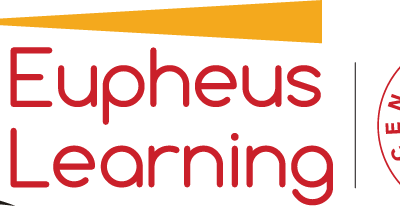

India’s Eupheus Learning Recognised in TIME’s World’s Top EdTech Rising Stars of 2024
-


Kerala Sets National Benchmark with AI Training Programme for 80,000 Teachers
-


Marked by Marks: The Stereotyping of Student Potential
-


Ivy Pressure Unveiled- The Need to Look Beyond the Ivy Gates
-


Ooty Set to Host India’s Premier Liberal Arts Symposium: LASSI 2024
-
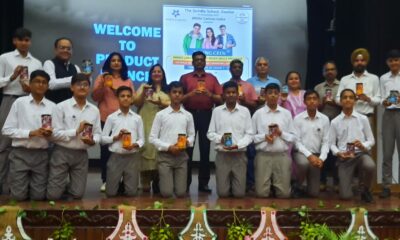

Scindia School Students Launch Start-Ups with White Canvas India’s Young CEO Program
-


Unsupervised Explorations: Rethinking Student Trips
-


Mapping Green Careers: Guiding Students Towards Sustainable Job Opportunities
-


Pricey Presents, Precocious Pressures: The Cost of Gift-Giving to Children
-
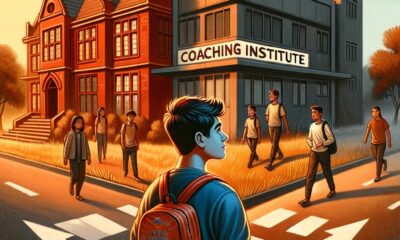

Addressing the Transition From Classrooms to Coaching: The Shifted Focus
Education
India’s Eupheus Learning Recognised in TIME’s World’s Top EdTech Rising Stars of 2024
Published
6 hours agoon
April 25, 2024
New Delhi, India – April 25, 2024 – Eupheus Learning, an Indian school-focused distribution platform, has been featured in TIME’s list of the World’s Top EdTech Rising Stars for 2024. The company, known for its innovative educational solutions, was recognized for its significant revenue growth over the past three years.
Amit Kapoor, Co-founder and CEO of Eupheus Learning, commented on the achievement, saying, “We are honoured to be recognized by TIME and STATISTA as one of the world’s top EdTech rising stars. This acknowledgment reflects our continuous pursuit of excellence and the positive impact our initiatives have had on the education sector.”
Eupheus Learning distinguishes itself in the educational sector by bridging the gap between in-classroom and at-home learning environments. Established in 2017, the company has quickly grown to serve over 10,000 schools across India, reaching one in every four premium private schools nationwide.
The company largely attributes its success to its pedagogically differentiated and technology-driven solutions, designed to meet the changing needs of educators and students. Their approach integrates various learning tools that cater to Kinaesthetic Learning, Reading Enhancement, STEM/STEAM, and English language learning.
Eupheus Learning’s initiatives include conducting Storytelling Sessions for Kids, hosting Olympiads, and organizing Coding Competitions, which have contributed to its strong market presence. The company aims to expand its reach to 10 million children in India through its classroom-first and curriculum-focused approach.
The recognition by TIME and STATISTA underscores Eupheus Learning’s commitment to empowering educators and students with innovative solutions that support lifelong learning and holistic development. This acknowledgment serves as a testament to Indian companies constantly influencing the global education landscape positively.
Education
Kerala Sets National Benchmark with AI Training Programme for 80,000 Teachers
Published
8 hours agoon
April 25, 2024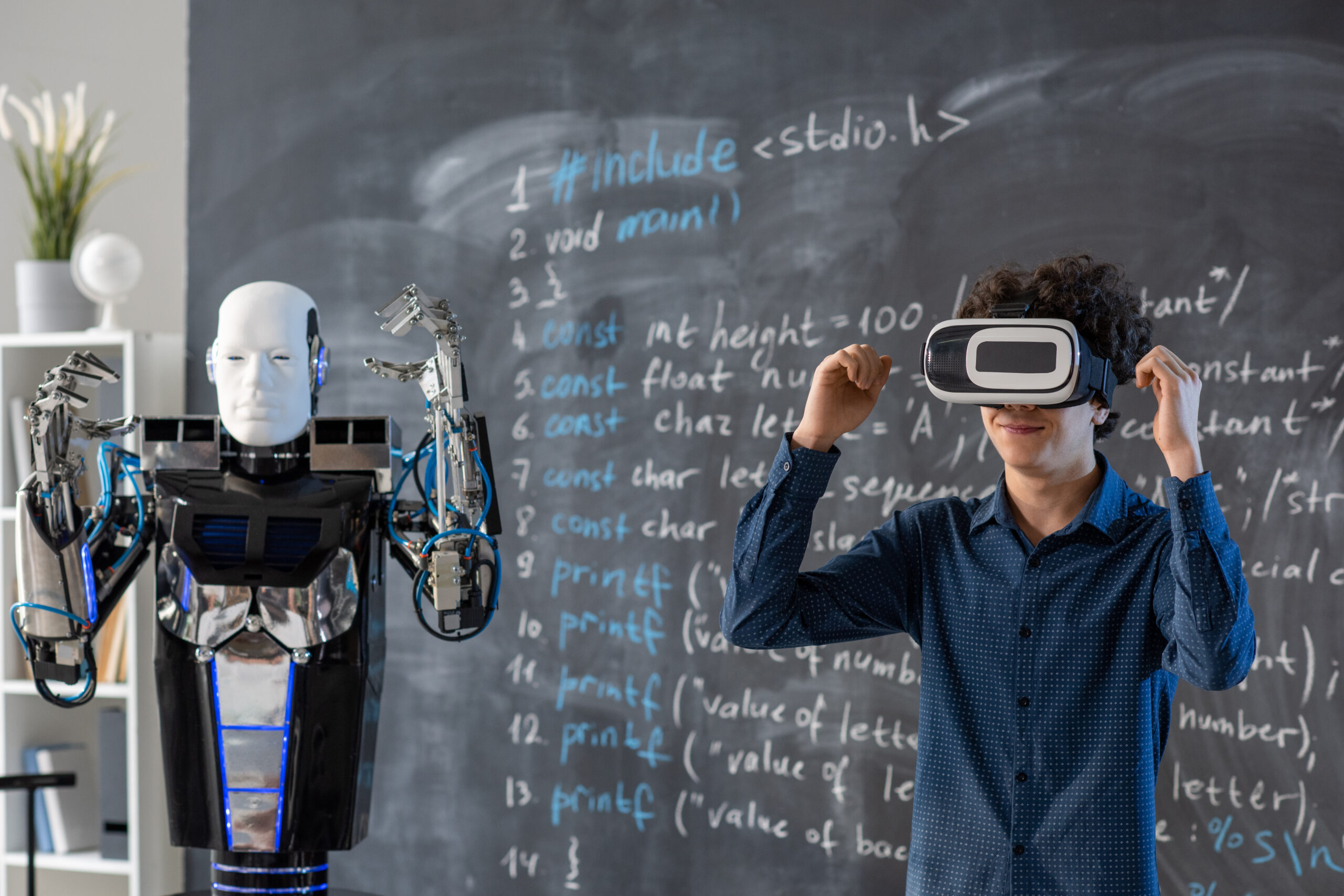
In an unprecedented move to integrate Artificial Intelligence into the educational framework, Kerala is set to launch a comprehensive AI training programme for approximately 80,000 secondary school teachers. Scheduled to begin on May 2, this initiative, spearheaded by the Kerala Infrastructure and Technology for Education (KITE), aims to revolutionise teaching methodologies and learning outcomes across the state.
Empowering Teachers with AI Skills
The three-day training programme is designed to empower teachers from Classes 8 to 12 with essential AI skills, enhancing their pedagogical techniques and ensuring they are adept at utilising advanced technologies in their teaching practices. The focus is on summarisation techniques to simplify complex documents and generate concise summaries from PDFs, images, and videos, ensuring key information is retained and even creating new content using AI tools.
Innovative Training Modules
Further enriching the training curriculum, KITE has incorporated sessions on Prompt Engineering and Machine Learning, which will enable teachers to craft precise prompts that maximize the utility of AI tools. This hands-on approach not only enriches their understanding of AI mechanisms but also allows them to apply these skills practically in educational settings.
Additionally, the programme will introduce AI-driven assessment techniques, providing teachers with new methods for designing diverse question formats and optimizing the assessment process through customisable tables, graphs, and charts.
Master Trainers and Personalised Learning
Under the guidance of 180 Master Trainers who have undergone a comprehensive one-month AI training, the programme is set to deliver high-quality education and support to teachers. According to K Anvar Sadath, Chief Executive Officer of KITE, “This programme not only equips teachers with cutting-edge AI capabilities but also fosters a culture of responsible AI usage.”
The training also aims to personalize learning activities to cater to individual student needs and adapt resources to be inclusive for students with disabilities, ensuring a holistic and equitable educational environment.
Pioneering a Future-Ready Educator Workforce
This bold initiative by Kerala not only promises to transform the educational landscape within the state but also sets a stellar example for other states to follow. The integration of AI into teaching practices is not just a progressive step towards modernizing education but also essential in preparing a future-ready educator workforce.
By investing in such forward-thinking programmes, states can ensure that their educators are not left behind in the rapidly evolving technological world. The benefits of equipping teachers with AI skills extend beyond enhanced educational outcomes; they include fostering an environment of innovation and critical thinking, crucial in nurturing the next generation of thinkers and leaders.
Why Other States Should Follow Suit
The success of Kerala’s initiative could serve as a catalyst for national educational reform. Other states stand to benefit immensely from implementing similar training programmes, which would not only elevate the quality of education but also strengthen the infrastructure of learning by integrating technology and innovation.
As reported by India Today, Kerala’s AI training programme is a pioneering effort in the realm of educational technology in India, setting a benchmark for others to emulate. It underscores the state’s commitment to creating an educational system that is inclusive, innovative, and in tune with the needs of the digital age.
In conclusion, Kerala’s approach provides a scalable model of how technology and education can intersect to create impactful learning experiences. This initiative not only enhances the capabilities of current educators but also ensures that the educational sector can adapt and thrive in an increasingly digital future.
Education
Marked by Marks: The Stereotyping of Student Potential
Published
13 hours agoon
April 25, 2024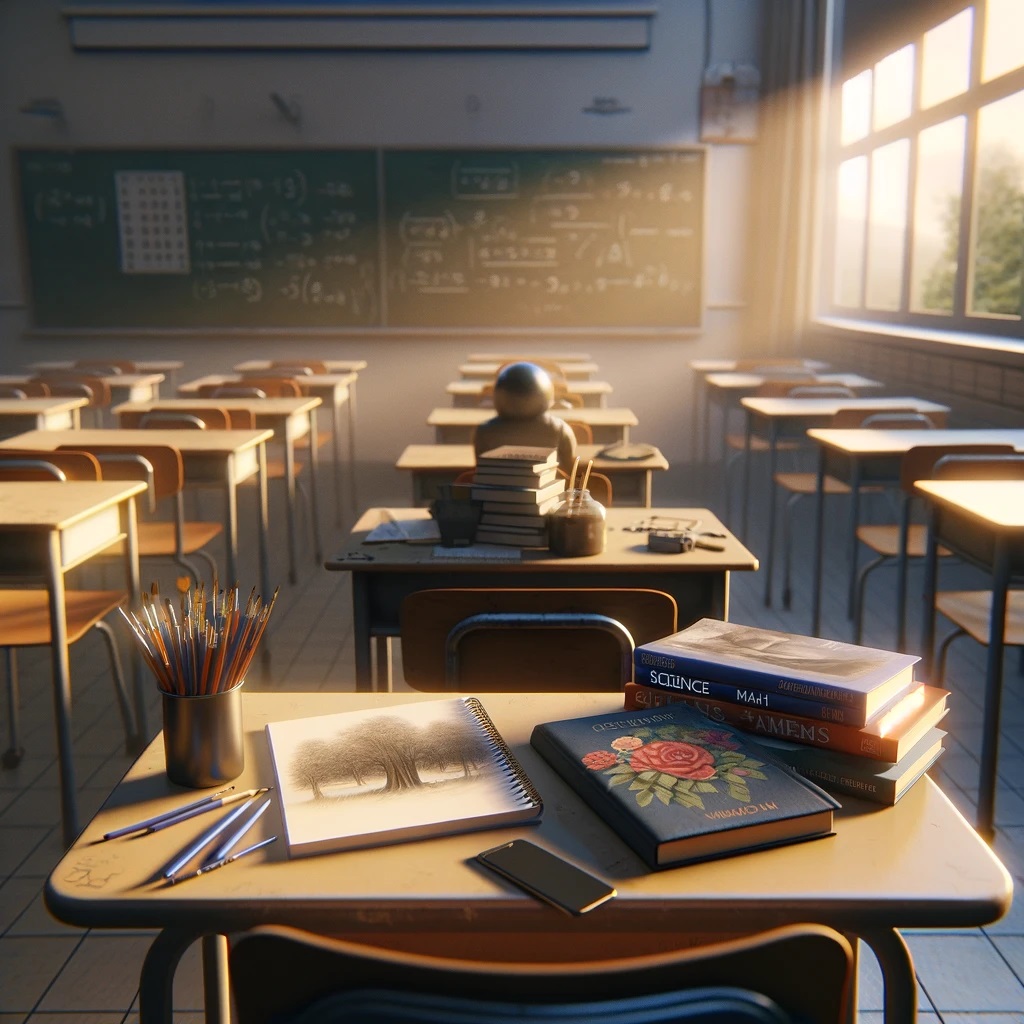
In the corridors of Prestusse Academy, where aspirations soared as high as the academic standards, Riya stood at a critical juncture. With her heart tethered to the humanities, she yearned to explore the vast landscapes of history, literature, and art. Yet, the societal symphony championing the supremacy of science and mathematics orchestrated a different path for her. Under the immense pressure of family expectations and societal norms, Riya found herself capitulating, stepping onto a path that was not her own.
As she enrolled in the science stream, a part of her spirit wilted. The subjects that once ignited curiosity and wonder in her peers seemed to her like insurmountable walls, blocking the view of her true passions. Despite her efforts, Riya’s academic performance, once stellar when fuelled by genuine interest, became painfully average. The accolades and recognition that used to be frequent visitors in her life now passed her by, unaware of her presence.
The transformation was stark. Riya, who could once articulate the beauty of a poem or the intricacies of historical events with unparalleled eloquence, now found herself lost in the labyrinth of equations and scientific theories. Her confidence, which was once anchored in her intellect and creativity, began to erode, leaving her to question not just her academic choices, but her inherent worth.
The decision to forgo her passion for the humanities in favour of a more ‘prestigious’ stream haunted her. Each day in the science class served as a reminder of what she had sacrificed at the altar of societal expectations. The vibrant discussions and debates that characterised humanities classes were now replaced with a silence that weighed heavily on her, a constant echo of her misplaced aspirations.
As the years passed, the repercussions of her decision rippled through her academic career and beyond. The girl who once dreamt of becoming a historian or a literary critic now found herself meandering through life, devoid of direction. Her attempts to reconnect with her passion for the humanities felt like too little, too late. The confidence and zeal that once defined her were replaced with a sense of mediocrity, as she became a jack of all trades, but master of none.
Riya’s story is a sombre reflection on the cost of conforming to societal pressures at the expense of one’s true calling. It begs the question: How many bright futures have been dimmed by the shadow of conformity? How many Riya’s must we witness before we acknowledge that the true measure of success lies not in the stream chosen, but in the passion and perseverance with which one pursues their dreams?
The tale of Riya’s detour from her passion to a path laid out by societal norms ends with a hard-hitting question for every stakeholder in a child’s education: Are we nurturing the seeds of individual talent and passion, or are we imposing our own unfulfilled aspirations and societal biases, thereby stunting the growth of potential luminaries in fields they were never meant to shine in?
Education
Ivy Pressure Unveiled- The Need to Look Beyond the Ivy Gates
Published
2 days agoon
April 24, 2024
In the heart of Prestise Valley School, nestled in a bustling city that prided itself on academic excellence, the story of Shanaya unfolded—a narrative steeped in ambition, aspiration, and the unspoken realities of chasing Ivy League dreams.
Shanaya , with her keen mind and boundless ambition, had always been the emblem of Prestise Valley’s pursuit of academic supremacy. Encouraged by a system that equated success with admission to the world’s most esteemed universities, she became the embodiment of her school’s aspirations. The corridors buzzed with talks of her future, painting her as the next prodigy destined for Ivy League glory.
As the acceptance letter from an illustrious Ivy League college arrived, it was not just a personal victory for Shanaya but a badge of honour for Prestise Valley. Yet, beneath the veneer of celebration, lay an overlooked truth—while Shanaya was prepared to compete for her place among the elites, she was unprepared for the reality that awaited her beyond the hallowed halls of her dream college.
Embarking on her journey with pride and anticipation, Shanaya soon encountered the stark disparity between being academically eligible and being holistically prepared. Surrounded by peers who were not only academically gifted but also equipped with a wealth of practical skills and worldly insights, she felt increasingly out of her depth. The rigorous curriculum, coupled with the expectations to excel in extracurricular arenas, highlighted the gaps in her preparation. Skills that should have been nurtured alongside academic pursuits—critical thinking, adaptability, and emotional resilience—were conspicuously absent.
The realisation dawned upon Shanaya that the race to the Ivy gates had overlooked the essence of true education. Her school’s relentless focus on prestigious admissions had neglected the foundational aspects that would enable her to thrive in such a competitive environment. With a heavy heart, Shanaya made the difficult decision to return home, facing not just the personal disappointment of unfulfilled potential but also the weight of collective expectations.
Her return was met with a silence that spoke volumes, a stark contrast to the fanfare that had heralded her departure. In the quietude of introspection, Shanaya pondered the lessons learned—not from textbooks, but from life. She resolved to chart a new path, one that balanced academic aspirations with the development of a versatile skill set and a resilient spirit.
Shanaya ‘s story, a mirror to countless young minds navigating the pressures of Ivy League aspirations, serves as a poignant reminder of the need for a holistic approach to education. It challenges the prevailing narrative, urging a shift from the singular goal of elite college admissions to fostering well-rounded individuals capable of navigating the complexities of the global stage.
As we explore the stories behind #IvyPressureUnveiled, how might we reconsider the essence of education—not merely as a race to the pinnacle but as a pathway of growth, discovery, and genuine readiness for life beyond the Ivy gates?
To read more on such trends that need to be called out and #un-trended, head to the April issue of our magazine here.
Education
Ooty Set to Host India’s Premier Liberal Arts Symposium: LASSI 2024
Published
2 days agoon
April 23, 2024
ScooNews, in collaboration with Good Shepherd International School, is set to host Liberal Arts and Science Symposium India (LASSI 2024), a transformative symposium designed to reshape the understanding and application of Liberal Arts and Science education in India. The event, themed ‘Shaping Tomorrow,’ will convene at the serene campus of Good Shepherd International School, nestled in the Nilgiri Hills, and aims to attract educators, students, and industry experts from across the world.
LASSI 2024 is dedicated to exploring the vital role of Liberal Arts and Sciences in developing well-rounded individuals capable of thriving in a dynamic global landscape. The event will provide a comprehensive platform for attendees to delve into the core concepts of Liberal Arts, tackle prevalent challenges, and assess the global perspectives shaping this field of study.
The symposium will feature an array of masterclasses, keynotes, and case studies, each designed to provide deep insights into the integration of Liberal Arts in modern education and its relevance in today’s job market. Participants will gain first-hand knowledge about overcoming barriers to implementing Liberal Arts in the Indian education system and the professional impacts of such an education.
Jacob Thomas, President of Good Shepherd International School, Ooty, expressed his enthusiasm about hosting the event: “GSIS is privileged to host the LASSI conclave, which is more than just an event; it’s a celebration of the enduring essence of education, the beauty of collaborative effort, and our collective quest for knowledge. We invite everyone to embrace this opportunity to learn, share, and engage in groundbreaking explorations of liberal arts and social sciences.”
The event will feature a dynamic series of presentations by a distinguished lineup of speakers. Leading the charge is Professor Sugata Mitra, a globally renowned educationist, who will deliver a session designed to inspire and redefine educational norms. Vardan Kabra, co-founder of Fountainhead School and author of “Reimagining Indian Education,” will discuss innovative educational strategies, and Maheshwar Peri, Founder of Careers360, will explore the variety of Liberal Arts programs in India. Additional speakers include, Naman Kandoi from Mayoor School Jaipur, Shankar Vanavarayar from Kumaraguru Group of Institutions, Chetna Mehrotra from Rangbhumi, Dr. Venka Purushothaman from LASALLE College of the Arts, Singapore, Prof Anil Srinivasan from Krea University, Dr Vijila Keneddy from KCLAS, Radhika Lobo from Vidyashilp University, Rahul Batra from Prakriti School, Reena Gupta from Ashoka University, Nisha Bhakar from Nandha Gokulam Life School, Sandeep Sethi from Maharaja Sawai Man Singh II Museum Trust, Vivek Atray from Shoolini University, and Prof. Saikat Majumdar from Ashoka University.
Additionally, LASSI 2024 will showcase leading Liberal Arts colleges from India and around the world, helping guide prospective students in making informed decisions about their educational futures. Success stories and groundbreaking research findings presented at the symposium will underscore the transformative impact of Liberal Arts education on careers and personal growth.
Set against the backdrop of Good Shepherd International School’s commitment to excellence in academics, sports, and co-curricular activities, LASSI 2024 promises to be a landmark event in the educational calendar. The school’s ethos, encapsulated by its motto “Truth, Trust, and Triumph,” aligns perfectly with the objectives of the symposium, promising a conducive environment for learning and interaction.
As LASSI 2024 prepares to open its doors, ScooNews and Good Shepherd International School invite educators, students, and all stakeholders to join in this enlightening journey. The symposium is poised to not only discuss but also shape the future of education, preparing the next generation for the challenges and opportunities of the 21st century.
Education
Scindia School Students Launch Start-Ups with White Canvas India’s Young CEO Program
Published
2 days agoon
April 23, 2024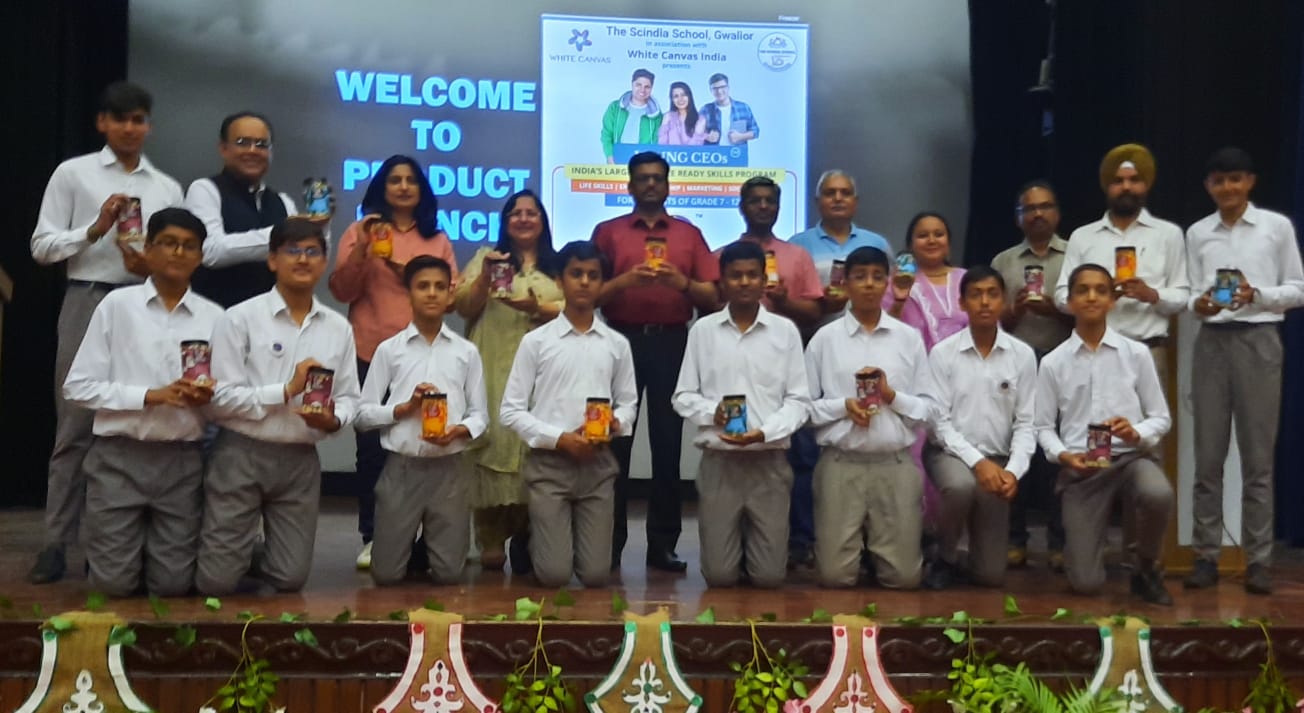
The Scindia School, in collaboration with White Canvas India’s Young CEO Program, has achieved a remarkable feat in fostering young entrepreneurship among its students. Inspired by Prime Minister Narendra Modi’s visit on October 21, 2023, where he encouraged students to “Dream big and Achieve big”, the school has seen the successful launch of three student-led start-ups within 100 working days following the event.
The newly established ventures include E – Siksha Sankalp, India’s pioneering digital literacy initiative that scales socio-entrepreneurial impact. Additionally, the students introduced Popped and Poppin, a novel superfood brand led by teenagers offering flavoured Makhana, and Bam brush, which features a range of sustainable products aligned with the United Nations Sustainable Development Goals.
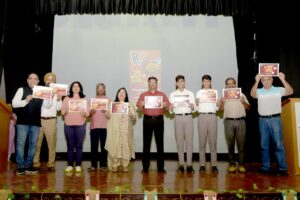
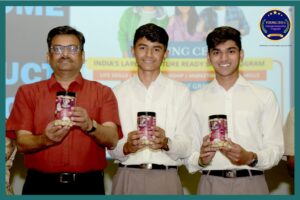
The teenage founders Khush Todi, Arrthham Jalan, Harshvardhan Wadher, Tanush Somani, and Ved Gupta have been deeply involved in every facet of their businesses. From conducting need analysis and crafting professional business plans to negotiating with vendors and marketing their products, these young entrepreneurs have actively demonstrated their capabilities in the real world. Their efforts are supported by the White Canvas India Young CEO Program, India’s first and most extensive entrepreneurial skills initiative for teenagers.
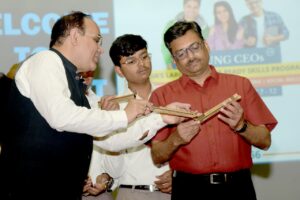
Shri Ajay Singh, Principal of The Scindia School, expressed his satisfaction with the program’s success, noting, “The program has met its outcomes and I am very happy.” Furthermore, Samaresh Shah, Founder of White Canvas India, highlighted the program’s broader mission, stating, “The White Canvas India Young CEO program is committed to making every Scindian a Viksit Bharat Ambassador.”
This initiative is in line with the National Education Policy and supports the vision of the World Economic Forum, Harvard Business Reports, and Forbes Entrepreneurship guidelines. It aims not just to educate but to empower students, equipping them with the necessary skills to thrive as future leaders and innovators.
As these young CEOs continue to develop their enterprises, they not only contribute to their personal growth but also set a precedent for youth entrepreneurship in India, proving that age is just a number when it comes to innovation and leadership.
Education
Unsupervised Explorations: Rethinking Student Trips
Published
3 days agoon
April 23, 2024
In a tale of youthful exuberance and unforeseen peril, six students from Class 12 embarked on a journey to Goa, a rite of passage celebrated by many as a final hurrah before stepping into adulthood. With permission from their parents, who were perhaps too trusting or caught up in their own lives, the group set out with excitement pulsing through their veins. Upon landing, they were greeted not just by the balmy Goan air but by three massive SUVs, reserved for their adventure—a promise of freedom and the thrill of the open road.
Their accommodation was a sprawling villa, costing a small fortune at 70,000 INR per night, equipped with private pools and luxuriously appointed rooms. It was a palace for kings and queens of the night, a haven for six souls intertwined in the throes of adolescence. Three rooms for three couples, the arrangements were a testament to their intentions, seeking privacy and moments of unchecked passion under the guise of a holiday.
As the days unfolded, the allure of Goa’s vibrant nightlife beckoned. The students, drawn to the magnetic pull of music and dance, found themselves in the heart of the party scene, clubbing into the early hours. It was here, amidst the revelry, that they encountered individuals with sinister motives—drug peddlers who saw not just customers but vulnerable targets in these wide-eyed teenagers.
Swept up in a desire to appear worldly and sophisticated, the group made a decision that would pivot their holiday from a dream to a nightmare. They purchased drugs, a choice made without foresight or understanding of the consequences. Their naivety became their downfall when the police, vigilant and unyielding, caught them in possession of these illegal substances.
The aftermath was swift and severe. The teenagers, underage and unprepared for the legal ramifications, were thrust into the cold reality of juvenile custody. Their parents, irrespective of their affluence, were faced with a situation no amount of money could easily resolve. Frantic and fearful, they did everything within their power to secure their children’s release, confronted with the harsh truth of their offspring’s actions.
This story, inspired by real events, serves as a stark reminder of the dangers lurking behind the facade of freedom and the allure of adulthood. It raises pressing questions about the role of guardianship and parental oversight in the lives of teenagers standing on the precipice of adulthood.
Could this grave misstep have been avoided had there been a local guardian present, a guiding light in unfamiliar territory? Would a more vigilant approach from the parents, a pause to question and understand, have rewritten the story’s conclusion? This incident forces us to confront the reality of our responsibilities towards our youth—not just to grant them freedom but to equip them with the wisdom to navigate it. As we ponder the delicate balance between trust and caution, we must ask ourselves: At what cost does freedom come, and are we doing enough to ensure that the journey into independence does not lead to a fall from grace?
To read more on such trends that need to be called out and #un-trended, head to the April issue of our magazine here.
Education
Mapping Green Careers: Guiding Students Towards Sustainable Job Opportunities
Published
3 days agoon
April 22, 2024
In the wake of escalating environmental concerns and the global push towards sustainability, the demand for green careers is surging. This World Health Day, celebrated on 22 April, 2024, let us understand these careers that not only aim to protect and preserve our planet but also offer promising economic prospects. Indian educational institutions, recognising the burgeoning sector of environmental jobs, are increasingly gearing their curricula and guidance services to help students navigate this new green economy.
Understanding Green Careers
Green careers encompass a broad spectrum of industries and sectors that aim to reduce environmental impact and promote sustainability. From renewable energy and sustainable agriculture to environmental policy and green architecture, the opportunities are vast and varied. These careers are crucial in addressing the challenges posed by climate change, resource depletion, and ecological degradation.
The Role of Schools in Promoting Green Careers
Schools play a pivotal role in shaping the career choices of students. By integrating environmental education and sustainability into their curricula, schools can expose students to the importance and viability of green careers. This can be achieved through several strategic initiatives:
- Curriculum Integration: Incorporating topics on sustainability, environmental science, and eco-friendly technologies within the STEM subjects can provide students with the foundational knowledge necessary for pursuing careers in these fields.
- Career Counselling: Schools can offer specialised counselling sessions that inform students about various green careers. These sessions can include information on the requisite educational paths, potential job markets, and long-term benefits of working in eco-conscious sectors.
- Industry Partnerships: Collaborations with companies and organisations in the sustainability sector can offer students real-world exposure through internships, workshops, and guest lectures. These experiences are invaluable in helping students make informed decisions about their future careers.
- Project-Based Learning: Encouraging students to undertake projects that solve real environmental issues can spark interest in green careers. These projects not only enhance learning but also instil a sense of responsibility towards the environment.
The Indian Job Market Prospects
In India, the renewable energy sector is a significant employer, with the country aiming to reach a renewable energy capacity of 450 GW by 2030. Careers in solar panel installation, wind energy engineering, and sustainability consultancy are on the rise. Moreover, the government’s emphasis on clean technologies and sustainable urban planning is creating numerous opportunities in green architecture and environmental planning.
Global Job Market Trends
Globally, the green job market is expanding rapidly. In Europe, the European Green Deal aims to make the EU’s economy sustainable by turning climate and environmental challenges into opportunities across all policy areas. This initiative is expected to bolster job creation in renewable energy, energy efficiency, and green transportation sectors.
In the United States, the growth of the electric vehicle (EV) industry is driving demand for jobs ranging from high-tech battery manufacturing to network systems management for EV charging stations. Similarly, the push for green buildings is fuelling a need for professionals skilled in green construction and building information modelling.
Preparing Students for the Future
By promoting green careers, schools are not only guiding students towards economically viable job paths but are also preparing them to be active participants in the stewardship of the planet. This dual focus on economic growth and environmental sustainability is essential for building a resilient global economy that can address the pressing challenges of our times.
To summarise, as the world increasingly pivots towards sustainability, the role of education in preparing the next generation for green careers becomes more crucial. Schools that embrace this shift not only contribute to the global demand for environmental stewards but also ensure that their students are ready for the future job market—a market that values both the economy and the environment.
Education
Pricey Presents, Precocious Pressures: The Cost of Gift-Giving to Children
Published
4 days agoon
April 22, 2024
In the intricate fabric of contemporary society, entwined with the threads of status and materialism, the ritual of gift-giving to young children has morphed into a showcase of wealth and social stature. This tale shines a light on the ripple effect of such extravagance through the eyes of Ayaan’s peers, young souls caught in the whirlwind of competition and comparison.
When Ayaan arrives at school with sneakers worth 80k or brandishes the latest iPhone as casually as a textbook, it’s not just a display of wealth; it becomes a benchmark, setting aflame a cycle of envy and desire among his classmates. The children, innocent in their yearnings, unknowingly step onto a treadmill of materialistic pursuit, urging their parents towards the edge of financial prudence in a bid to not fall behind.
The spectacle reaches its zenith when Ayaan, in a display of unparalleled opulence, gifts iPods as return gifts on his birthday. An act, while grand, sends shockwaves through his circle, planting seeds of expectation and entitlement in young hearts. Parents, caught between nurturing happiness and teaching value, find themselves navigating a treacherous path of societal pressure and fiscal responsibility.
As each child in Ayaan’s orbit feels compelled to mirror his lavish lifestyle, the essence of childhood camaraderie is shadowed by the looming spectre of materialism. Friendships, once untainted by the world’s complexities, now bear the weight of economic disparity. The playground becomes a silent witness to conversations not of games and dreams, but of gadgets and brands, a testament to a culture veering away from the innocence of youth.
The impact extends beyond the tangible, chipping away at the pillars of equality and mutual respect. As peers vie to outdo each other in a race fuelled by parental indulgence, the divide widens not just in their possessions but in their perceptions of self-worth and success. The classroom, a microcosm of society, reflects a disturbing trend of measuring one’s value through the lens of ownership and extravagance.
This narrative, while centred on Ayaan and his affluent displays, casts a spotlight on the broader societal implications of such gift-giving practices. It prompts a critical examination of the values we impart to our children and the world we aspire to create for them. As we navigate this maze of materialism and the stories of Ayaan and his peers unfold, they serve as a mirror to our collective conscience, urging us to reconsider the legacy we wish to leave behind. The question that beckons us to reflect is profound: Are we raising a generation that values possessions over people, status over substance?
To read more on such trends that need to be called out and #un-trended, head to the April issue of our magazine here.
Education
Addressing the Transition From Classrooms to Coaching: The Shifted Focus
Published
6 days agoon
April 19, 2024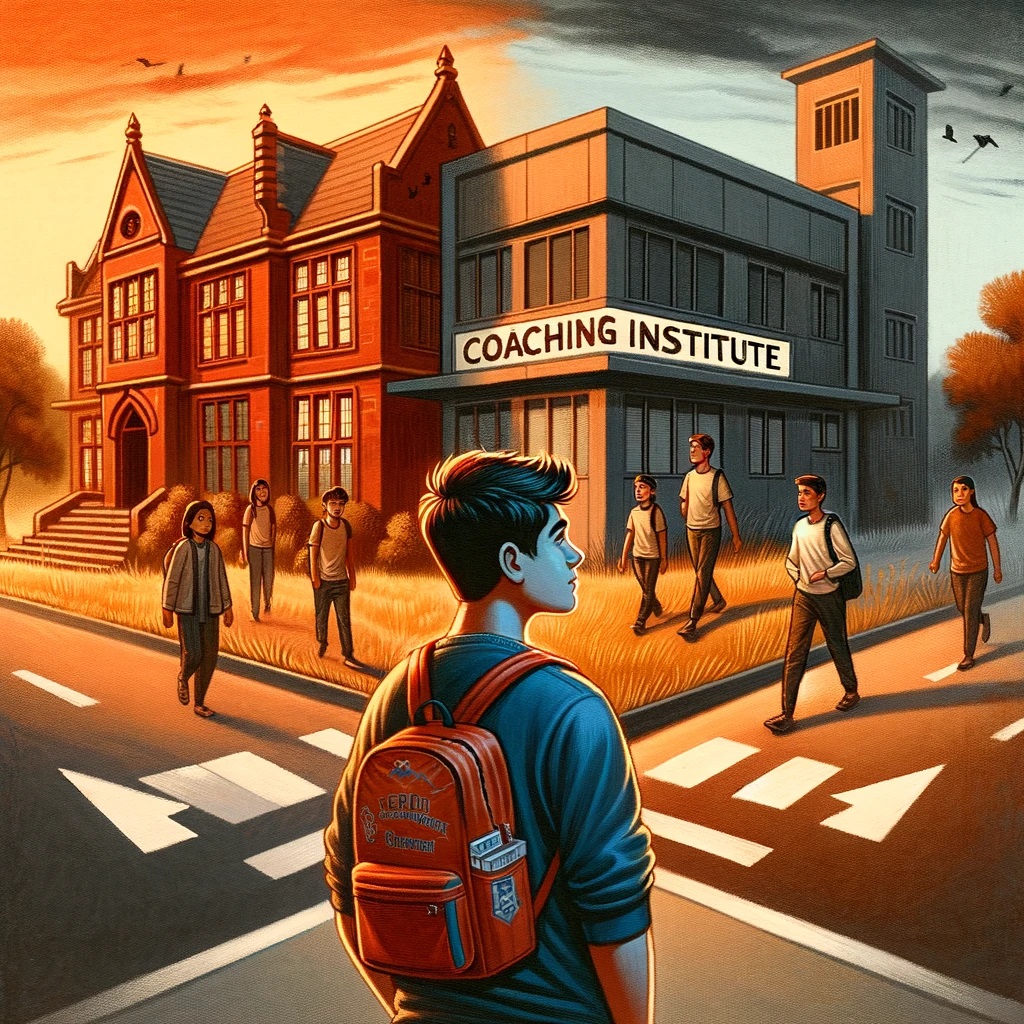
In the bustling academic corridors of Woody High, nestled amidst the verdant suburbs of a thriving city, the story of Vikram, a bright and ambitious student, begins to unfold. Vikram, like many of his peers, found himself at a crossroads as he stepped into the crucial years of 11th standard, caught between the traditional path of school education and the burgeoning trend of dummy admissions.Classrooms to Coaching: The Shifted Focus
The lure of coaching centres, promising a direct route to success in competitive exams, became increasingly irresistible. Vikram watched as one by one, his classmates traded the familiar setting of classrooms for the rigorous regimen of coaching institutes. The promise was simple: a focused preparation tailor-made for cracking entrance exams, seemingly a pragmatic choice in an increasingly competitive world.
However, this exodus from school to coaching centres revealed a deeper malaise within the education system. Schools, once vibrant communities of learning and growth, had slowly morphed into factories churning out board exam results. The holistic development of students, their readiness for the world beyond the gates of Woody High, seemed to have taken a backseat to the singular pursuit of academic scores.
Vikram’s decision to join the coaching bandwagon was met with a mix of hope and apprehension. The initial months were a blur of new concepts, relentless practice sessions, and the constant pressure to outperform. Yet, as the novelty wore off, Vikram found himself yearning for the missed debates in history class, the group projects in science, and the sense of belonging that came with being part of the school community.
The turning point came when Vikram, amidst his packed coaching schedule, volunteered for a community project. The experience was eye-opening, highlighting the gap between the rote learning at coaching centres and the practical knowledge and soft skills required in the real world. It dawned on Vikram that education was not just about clearing exams but about building a foundation for life.
As Woody High grappled with the dwindling numbers of students in its classrooms, it became evident that a change was needed. Schools had to evolve beyond their board-result orientation, integrating curriculum with real-world applications, fostering critical thinking, and preparing students for life’s myriad challenges.
The story, based on real incidents, raises the question that looms large, as we reflect on the narrative of #ClassroomOrCoaching: How can schools reclaim their role as sanctuaries of holistic education, ensuring they remain relevant and valuable in the lives of students like Vikram, not just as conduits to board results but as launchpads for their futures?
In a world where the race to the top often overlooks the essence of learning, can we afford to let coaching centres replace the rich, multifaceted experience of school education?
To read more on such trends that need to be called out and #un-trended, head to the April issue of our magazine here.
Newsletter

India’s Eupheus Learning Recognised in TIME’s World’s Top EdTech Rising Stars of 2024

Kerala Sets National Benchmark with AI Training Programme for 80,000 Teachers

Marked by Marks: The Stereotyping of Student Potential

Ivy Pressure Unveiled- The Need to Look Beyond the Ivy Gates

Ooty Set to Host India’s Premier Liberal Arts Symposium: LASSI 2024

Scindia School Students Launch Start-Ups with White Canvas India’s Young CEO Program

Unsupervised Explorations: Rethinking Student Trips

Mapping Green Careers: Guiding Students Towards Sustainable Job Opportunities

Pricey Presents, Precocious Pressures: The Cost of Gift-Giving to Children

Addressing the Transition From Classrooms to Coaching: The Shifted Focus

Questioning the Trend of Lavish Farewells- #FarewellFiasco

Young Birders’ Workshop Opens Registration for Children Aged 10-13 Years

STEMpedia Successfully Completed Codeavour 5.0- India’s National Innovation Fest

Reviving School Education: Countering the Coaching Centre Dominance
CBSE to Initiate Pilot for National Credit System in Grades 6, 9, and 11

The Role of Marketing in Education: Navigating the New Educational Landscape

From Overwhelmed to Empowered: Strengthening Educator Skills for Success

NCERT Introduces Bridge Month Programme for Class 6 Amid Textbook Transition

Indian Embassy Advocates for India-US Collaboration in Education Sector

Nurturing Healthy Behaviors: The Role of Schools in Shaping Health-Conscious Citizens

CBSE Updates Exam Structure for 11th & 12th Class; Concept-based Questions Now 50% of Weightage

Sharing the spotlight: When parent and child take board exams together

Rebalancing the Scales: The Urgent Call for Humanities in STEM-Dominated Curricula

Palette of Possibilities: Nurturing Creativity in Schools through Modern Art

Empowering Minds: The Journey of My Guide Inside with Christa Campsall

Life of My Father: Dr. Jagdish Gandhi, a Pioneer in Education

Mayo College Announces New Leadership

Post-pandemic: Embracing Well-being in India’s Schools with My Guide Inside

Empowering the Future: The Success of Beti Bachao Beti Padhao in Girls’ Education

Is Students’ Data in Safe Hands in a Digital World?

Central Government Sets New Framework for Coaching Centres

FPSB India and IIM Bangalore Forge Strategic Partnership to Advance Financial Education

Radio Broadcasting in Schools: Creating a Platform for Student Voices

Kerala Introduces ‘Water-Bell’ Initiative in Schools to Boost Hydration

India to recognise Farsi as a classical language under New Education Policy

Farewell to a Pioneer: Dr. Jagdish Gandhi’s Enduring Legacy in Education

Anticipating a Progressive Leap: The Education Sector’s Hopes for Union Budget 2024

Lexicon Schools Spark Innovation with STEAM Fest

The Need to Preserve Newspapers for Bias-Free Education

A Voice for All Ages: The Enduring Legacy of Ameen Sayani in Indian Education

From 2025-26, Indian Students to Get Two Opportunities to Sit for Board Exams

Seth M. R. Jaipuria School launches CBSE School in Bhiwadi, Rajasthan

International Women’s Day 2024: Are We Not Special?

The Rising Leaders’ Summit 2024: A Timeless Learning for Future Educational Leaders

ISRO Launches Young Scientist Programme 2024 for Budding Space Enthusiasts

Teach for India Invites Applications for its 2024 Fellowship Program

Ministry of Women and Child Development Unveils National Curriculum Framework for Early Childhood Care and Education

World Theatre Day: Let Theatre Arts Make Classroom’s Showtime Spectacular!

India Sets 6-Year Minimum Age for Class 1 Admissions Nationwide

CBSE considering Open Book Exams for classes 9-12, to do a pilot run in November
SGEF2023 | Special Address by Rama Datt, Trustee, Maharaja Sawai Man Singh II Trust, Jaipur

ScooNews | After Movie | ScooNews Global Educators Fest 2023

Aftermovie | NIES2 UP Chapter | 21 Jan 2023

WEBINAR | Gamification in Education: How Digital Badges Can Boost Student Motivation and Engagement

ScooNews | WEBINAR| Importance of Physical Activity for Children at School | Plaeto

SCOONEWS | WEBINAR | WHY DIGITIZING YOUR SCHOOL IS A MUST | TEACHMINT

Keynote Address | Lakshyaraj Singh Mewar

Anurag Tripathi, Secretary, CBSE at SGEF2022

How schools can nurture every student’s genius

Aftermovie | SGEF2022 | Jaipur

Li Andersson | Minister of Education | Finland

Anurag Tripathi, Secretary, Central Board of Secondary Education (CBSE) discusses NEP2020

ScooNews | Early Ed Asia 2019 | Aftermovie
#PodarECEconf : Pursuing quality ECE

#CBSE Class XII #Results #Highlights

The interesting story of India’s educational system | Adhitya Iyer

A young scientist’s quest for clean water

The Danger of Silence: Clint Smith

National Digital Library of India is an initiative by HRD Ministry

Remembering Kalpana Chawla on her birthday!

Message from Sadhguru for Students!
Message from Sadhguru for Students!

The Untapped Genius That Could Change Science for the Better

Eddy Zhong: How school makes kids less intelligent TEDxYouth@Beacon

#TEDxCanberra : What if every child had access to music education…
Trending
-
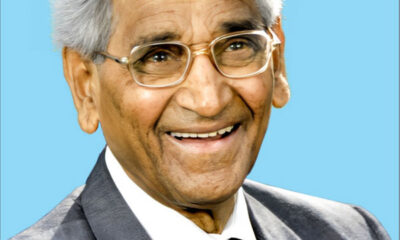
 Inspiration1 month ago
Inspiration1 month agoLife of My Father: Dr. Jagdish Gandhi, a Pioneer in Education
-
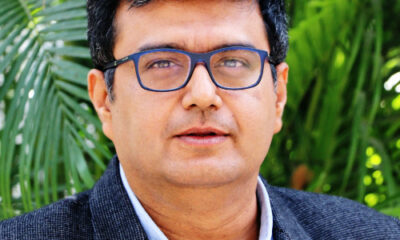
 Education3 months ago
Education3 months agoMayo College Announces New Leadership
-

 Education1 month ago
Education1 month agoPost-pandemic: Embracing Well-being in India’s Schools with My Guide Inside
-
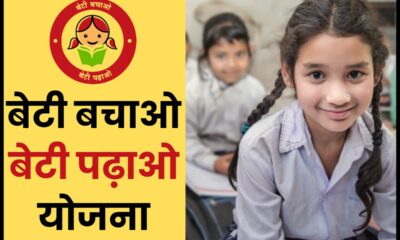
 Education3 months ago
Education3 months agoEmpowering the Future: The Success of Beti Bachao Beti Padhao in Girls’ Education
-

 Knowledge3 months ago
Knowledge3 months agoIs Students’ Data in Safe Hands in a Digital World?
-
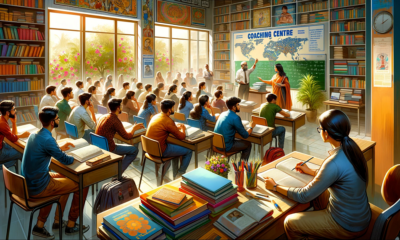
 Education3 months ago
Education3 months agoCentral Government Sets New Framework for Coaching Centres
-
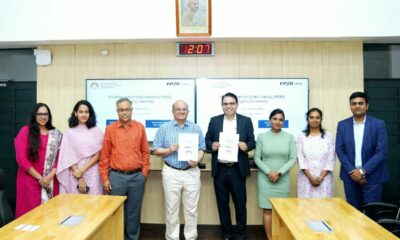
 Education4 weeks ago
Education4 weeks agoFPSB India and IIM Bangalore Forge Strategic Partnership to Advance Financial Education
-
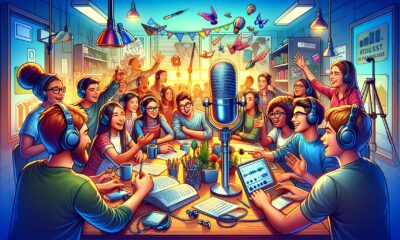
 Education2 months ago
Education2 months agoRadio Broadcasting in Schools: Creating a Platform for Student Voices
-

 Education2 months ago
Education2 months agoKerala Introduces ‘Water-Bell’ Initiative in Schools to Boost Hydration
-
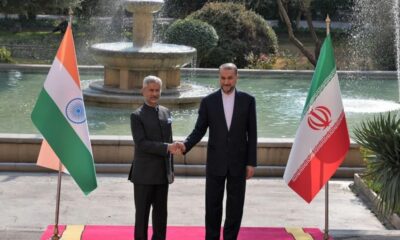
 Education3 months ago
Education3 months agoIndia to recognise Farsi as a classical language under New Education Policy



